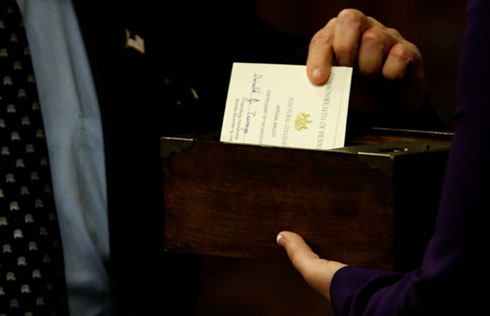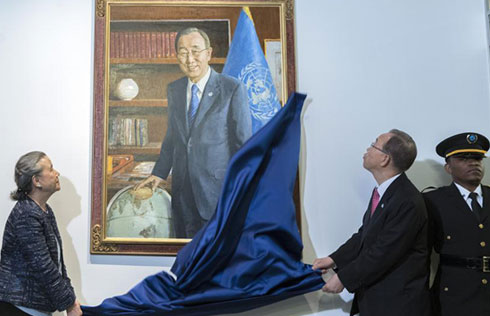UN hails news that baby with HIV is deemed cured
UNITED NATIONS - Two UN agencies welcomed news of a baby born with HIV, the virus that causes AIDS epidemic, "who now as a toddler appears 'functionally cured' through treatment," a UN spokesman told reporters Monday.
The welcome was extended by the Joint United Nations Program on HIV/AIDS (UNAIDS) and the UN Children's Fund (UNICEF), deputy UN spokesman Eduardo del Buey said at a daily news briefing.
"The UN agencies said that if the findings are confirmed, this would be the first well-documented case of an HIV-positive child who appears to have no detectable levels of the virus despite stopping HIV treatment," he said.
The findings were presented on Monday at the Conference on Retroviruses and Opportunistic Infections (CROI) in Atlanta in the US state of Georgia.
According to researchers, the mother who was living with HIV at the time of birth had not received antiretroviral (ARV) medication or prenatal care. Researchers say that the child was born prematurely in July 2010 in the US state of Mississippi.
Due to the high risk of exposure to HIV, the researchers said the baby was started on a triple therapy regimen of antiretroviral drug 30 hours after birth and before proof of infection could be confirmed. The newborn's HIV-positive status was subsequently confirmed through a highly sensitive polymerase chain reaction testing which was conducted on several occasions.
The case study stated that the baby girl, now two and a half years old, was discharged from the hospital after one week and continued ARV treatment until 18 months of age, when for reasons that are unclear the treatment was discontinued. However, when the child was seen by medical professionals about a half a year later, blood samples revealed undetectable HIV levels and no HIV-specific antibodies, UNAIDS said at its website.
"UNAIDS Executive Director Michel Sidibe said that this news gives us great hope that a cure for HIV in children is possible and could bring us one step closer to an AIDS-free generation," the spokesman said. "He said that this also underscores the need for research and innovation, especially in the area of early diagnostics."
Meanwhile, the spokesman said, "The UNICEF executive director, Anthony Lake, said that this case demonstrates what we already know: it is vital to test newborn babies at risk as soon as possible."
"UNAIDS and UNICEF said that they looks forward to further studies to see if findings can be replicated," he said.



















